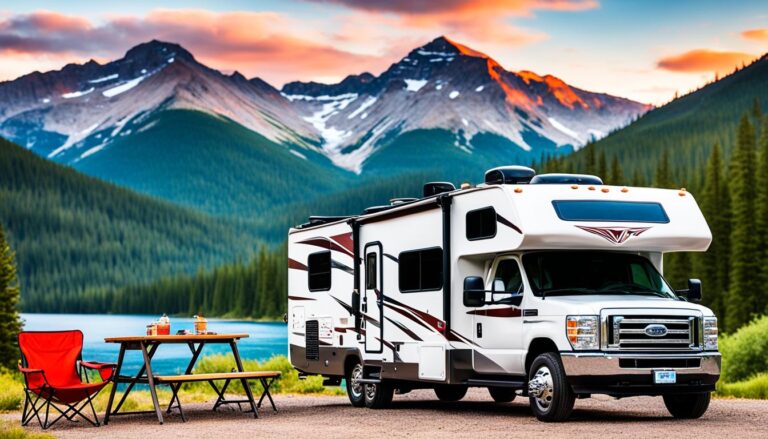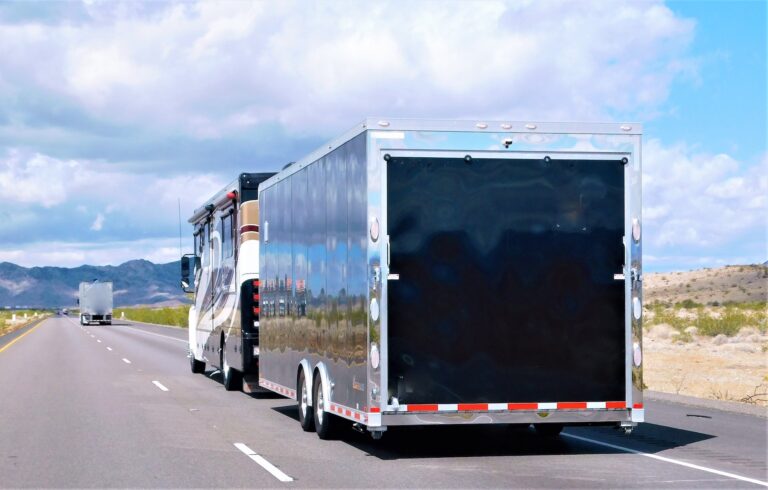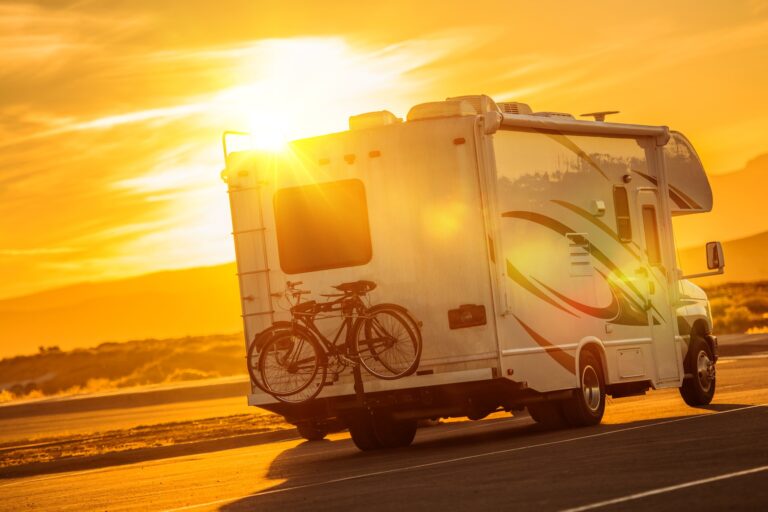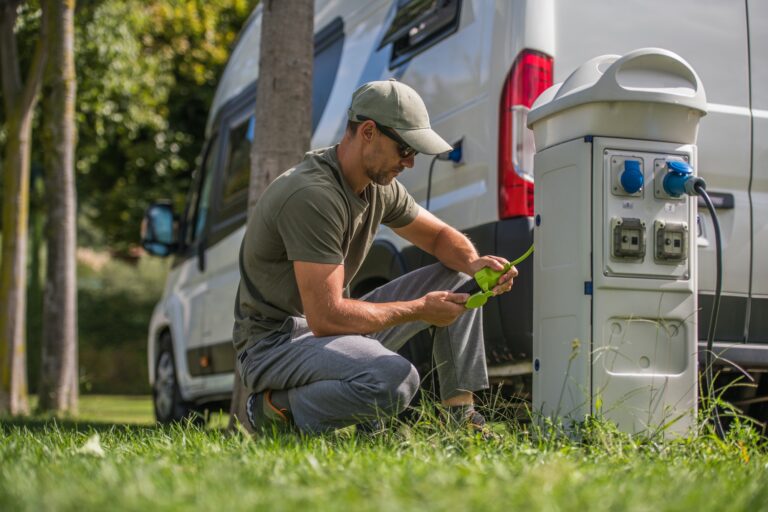Welcome to our in-depth analysis of RV ownership costs! If you’re considering buying an RV or already own one, it’s important to understand all the costs associated with RV ownership. While the initial cost of purchasing an RV can be high, it’s the ongoing expenses that can really add up over time. That’s why we’ve put together this comprehensive guide to help you make informed decisions.
In this article, we’ll cover the main factors that affect RV ownership costs, including RV maintenance costs, RV insurance costs, and RV fuel costs. We’ll also discuss additional costs that you might not expect, such as RV storage costs and RV campground fees. By the end of this article, you’ll have a better understanding of all the costs associated with RV ownership and be better equipped to budget for them.
So let’s dive in and take a closer look at the hidden costs of RV ownership!
Factors Affecting RV Ownership Costs
Owning an RV is a dream come true for many, but it’s not without its costs. In this section, we’ll take a closer look at the main factors that affect the costs of owning an RV.
RV Maintenance Costs
Maintaining an RV is crucial to ensure it stays in good condition for years to come. Regular maintenance tasks can include oil changes, tire rotations, and replacing air filters. The cost of routine maintenance varies depending on the type of RV and the age of the vehicle. As a rule of thumb, RV owners should budget around $1,000 per year for maintenance costs.
However, unexpected repairs can quickly add up. RV owners should be prepared for potential issues such as water leaks, faulty electrical systems, or engine problems. It’s recommended to have an emergency fund to cover unexpected repair costs.
RV Insurance Costs
RV insurance is a necessary expense to protect your investment. The cost of insurance varies depending on the type of RV, its value, and the coverage you select. On average, RV insurance costs around $1,500 per year. However, factors such as your driving record, location, and the RV’s storage location can affect the price.
It’s important to select the right coverage for your needs. You’ll want to look for policies that cover liability, collision, and comprehensive damage. Additional coverage options may include roadside assistance, personal injury protection, and uninsured motorist coverage.
RV Fuel Costs
RV fuel costs can be a significant expense, especially for larger vehicles. The average fuel economy for an RV is around 8-10 miles per gallon. This means that a 100-mile trip can cost around $40-$50 in fuel costs alone.
To minimize fuel costs, RV owners should plan their routes carefully and avoid unnecessary driving. Maintaining proper tire pressure, ensuring your vehicle is in good condition, and driving at a steady speed can also improve fuel efficiency.
In conclusion, understanding the main factors that affect RV ownership costs is crucial for any prospective or current RV owner. By budgeting for maintenance, insurance, and fuel costs, RV owners can enjoy the freedom of the open road without breaking the bank.
RV Maintenance Costs: What to Expect
Owning an RV means being responsible for its maintenance. While it can be a fun and rewarding experience, it’s important to understand what types of maintenance tasks you can expect to perform and how much they will cost.
Regular maintenance tasks include checking and replacing fluids, inspecting and replacing filters, and testing and replacing batteries. These tasks typically cost between $200 and $500 per year, depending on the age and condition of your RV.
However, unexpected repairs can happen at any time and can be costly. RV repair costs can range from a few hundred dollars to several thousand dollars, depending on the severity of the issue and the parts needed to fix it. It’s important to have a budget set aside for unexpected repairs or consider purchasing an extended warranty to avoid unexpected expenses.
RV Insurance: How Much Coverage Do You Need?
When it comes to RV insurance, it’s important to have the right coverage to protect your investment. But how much coverage do you actually need?
There are several types of RV insurance coverage available, including liability coverage, collision coverage, comprehensive coverage, and personal injury protection. Liability coverage is required by law in most states and covers damages or injuries you cause to others in an accident. Collision coverage pays for damages to your RV in an accident, regardless of who is at fault. Comprehensive coverage covers non-accident-related damages, such as theft or weather damage. Personal injury protection covers medical expenses for you and your passengers in the event of an accident.
The amount of coverage you need will depend on several factors, such as the value of your RV, how often you use it, and where you store it. If you have a high-end RV, you’ll likely want to have more coverage to protect your investment. If you only use your RV occasionally, you may not need as much coverage as someone who uses their RV full-time.
When shopping for RV insurance, it’s important to compare quotes from multiple providers to get the best deal. You should also consider any discounts that may be available, such as bundling your RV insurance with your car insurance or taking a defensive driving course.
Pro tip: Before purchasing RV insurance, make sure to read the policy carefully and ask questions if you’re unsure about anything. You want to make sure you fully understand your coverage so you know what to expect in the event of an accident.
Fuel Costs: The Impact of Fuel Efficiency
Fuel costs are a major expense when it comes to owning an RV. However, you can save money on fuel costs by improving your RV’s fuel efficiency.
The Importance of Fuel Efficiency
The amount of fuel your RV uses directly impacts your fuel costs. Therefore, it is important to understand how to improve your RV’s fuel efficiency. A more fuel-efficient RV not only saves money on fuel costs, but it also reduces your carbon footprint.
Calculating Fuel Costs
Before you can improve your RV’s fuel efficiency, you need to calculate your current fuel costs. To do this, keep track of how much fuel you use and how much you spend on fuel. Once you know your average fuel consumption and your fuel costs, you can calculate your fuel costs per mile.
Improving Fuel Efficiency
There are several ways to improve your RV’s fuel efficiency, such as:
- Reduce weight: Extra weight puts strain on your RV’s engine, which reduces fuel efficiency. Only pack what you need and remove any unnecessary items.
- Keep tires properly inflated: Underinflated tires create more rolling resistance, which reduces fuel efficiency. Check your tire pressure regularly and keep them properly inflated.
- Drive at a moderate pace: Speeding and sudden stops use more fuel. Drive at a moderate, consistent pace to improve fuel efficiency.
- Plan your routes: Avoid hilly or mountainous roads, and plan your routes to avoid heavy traffic. This can help improve fuel efficiency.
Conclusion
Improving your RV’s fuel efficiency can help save you money on fuel costs. By reducing weight, keeping tires properly inflated, driving at a moderate pace, and planning your routes, you can improve your RV’s fuel efficiency and reduce your carbon footprint.
Additional Costs: What You Might Not Expect
Aside from RV maintenance costs, insurance, and fuel expenses, there are other costs associated with owning an RV that you might not expect. These expenses can add up quickly if you’re not careful with your budgeting. Here are some additional costs to keep in mind:
RV Storage Costs
If you don’t have enough space to store your RV at your home, you may need to consider renting a storage space. RV storage fees can vary depending on location and the level of security offered, but you can expect to pay anywhere from $30 to $500 a month. To save money, look for a storage facility outside of the city or in a less-populated area. Just be sure to factor in additional transportation costs if the storage facility is far from your home.
RV Campground Fees
When you plan a trip in your RV, you’ll need to consider campground fees. Campground fees can vary depending on location, amenities, and the time of year. You can expect to pay anywhere from $10 to $75 per night. Some campgrounds offer discounts for longer stays, so it might be worth it to plan an extended trip to save money. Additionally, if you plan on traveling frequently, you may want to invest in a membership to a camping club, which can offer discounted rates on campgrounds across the country.
Propane Costs
Propane is used in many RVs for cooking, heating, and powering appliances. The cost of propane can vary depending on location and supply and demand. You can expect to pay anywhere from $2 to $4 per gallon. To save money, consider purchasing propane in bulk, and always be on the lookout for the best deals.
Tolls and Parking Fees
If you plan on traveling on toll roads, factor in the cost of toll fees into your budget. Additionally, if you plan on visiting cities or popular attractions, parking fees can quickly add up. Research parking options in advance to find the most affordable options.
By taking into account these additional costs, you can ensure that you’re budgeting properly for the true cost of RV ownership. Remember, every dollar counts, and with proper planning, you can make the most of your RV ownership experience.
FAQ: Commonly Asked Questions About RV Ownership Costs
If you’re considering purchasing an RV, it’s important to be aware of all the associated costs. Below are answers to some commonly asked questions about RV ownership costs.
How much does it cost to maintain an RV?
The cost of maintaining an RV can vary greatly depending on the type and age of the RV. Generally, owners should budget around $1,500-$3,000 annually for maintenance costs.
What is the average RV insurance cost?
The average cost of RV insurance can vary depending on several factors, such as the age and type of RV, location, and usage. On average, RV insurance costs around $1,000-$2,000 per year.
Do I need special insurance for my RV?
Yes, you will need specialized RV insurance coverage to protect your RV from damages and liability on the road. Regular auto insurance policies usually do not provide adequate coverage for RVs.
How much do RV campground fees typically cost?
The cost of RV campground fees can vary depending on the location and amenities offered. Basic campgrounds with few amenities may cost around $20-$40 per night, while more upscale campgrounds with amenities like pools and restaurants can cost upwards of $100 per night.
Do I need to pay to store my RV when not in use?
Yes, owners will need to pay for RV storage when the RV is not in use. The cost of storage can vary depending on the location and type of storage option chosen. Indoor storage typically costs more than outdoor storage, and monthly rates can range from $50-$500.
By understanding all the costs associated with RV ownership, you can make an informed decision and plan accordingly. Remember to factor in all these costs when budgeting for your RV adventures.





